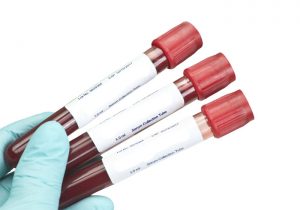
Understanding Oral Herpes—Answers to Your Questions
About 50 percent of the adult population in the United States has oral herpes. Most people contract oral herpes when they are children by receiving a kiss from a friend or relative.
Is that sore or rash actually genital herpes? Can you tell by just looking? Can a healthcare provider? No! When it comes to diagnosing genital herpes, it takes more than a look.

There are different tests available for herpes. Viral culture and DNA tests can be done if you are experiencing symptoms. Blood tests are available for people who may not have had symptoms or if the signs have already healed.
When a person has active herpes lesions (a.k.a. blisters, sores, ulcers), a swab can be taken and tests done that can detect the virus directly.
The tests used include culture and Nucleic Acid Amplification Testing (NAAT). Both culture and NAAT tests can identify the specific herpes virus type someone is infected with, but NAAT methods are more sensitive. Culture can easily miss infections and give false negative results.
Because a culture works by requiring virus that is active, if a lesion is very small, or is already beginning to heal, there may not be enough virus present for an accurate culture. Beyond 48 hours of the symptoms appearing, there is a risk of receiving a false negative test result. Viral culture is even less accurate during recurrences (positive in only about 30% of recurrent outbreaks).
NAAT methods are the preferred method, with PCR as the most-widely used NAAT method. These tests are fast, accurate, and can tell if a person has HSV-1 or HSV-2. There is also less chance of a false negative result with NAATs.
Blood tests can be used when a person has no visible symptoms but has concerns about having herpes. Blood tests do not actually detect the virus; instead, they look for antibodies (the body’s immune response) in the blood.
When an individual contracts herpes, the immune system responds by developing antibodies to fight the virus: IgG and IgM. Blood tests can look for and detect these antibodies—not the virus itself. IgG appears soon after infection and stays in the blood for life. IgM is actually the first antibody that appears after infection, but it may disappear thereafter.
IgM tests are not recommended because of three serious problems:
The accurate herpes blood tests detect IgG antibodies. Unlike IgM, IgG antibodies can be accurately broken down to either HSV-1 or HSV-2. The challenge here is that the time it takes for IgG antibodies to reach detectable levels can vary from person to person. For one person, it could take just a few weeks, while it could take a few months for another. So even with the accurate tests, a person could receive a false negative if the test is taken too soon after contracting the virus.
For the most accurate test result, it is recommended to wait 12 – 16 weeks from the last possible date of exposure before getting an accurate, type-specific blood test in order to allow enough time for antibodies to reach detectable levels.
There are currently several FDA-approved, gG-based blood tests that can give accurate results for herpes. Like any blood test, these tests cannot determine whether the site of infection is oral or genital. However, since most cases of genital herpes are caused by HSV-2, a positive result for type-2 antibodies most likely indicates genital herpes.
Herpes experts H. Hunter Handsfield, MD, and Kees Reitmeijer, MD, PhD, explain the types of herpes tests available, what tests are preferred for those with or without symptoms, and what test to avoid. See more of their conversation on sexualhealthTV.org. Have a question about herpes you’d like Dr. Handsfield or our other experts to answer? Visit Ask the Experts to learn how.

About 50 percent of the adult population in the United States has oral herpes. Most people contract oral herpes when they are children by receiving a kiss from a friend or relative.

While there is no cure for herpes simplex virus (HSV) infections, there are various treatment options available that can help manage symptoms and control outbreaks.

Most people with herpes won’t experience symptoms, but knowing what to look for can make you more aware.

A paper published ahead of print in Sexually Transmitted Diseases finds that commercial blood tests commonly used to diagnose herpes simplex virus (HSV) are frequently not reliable, especially in those with “low positive” results.

The best way for couples to deal with herpes is to talk about it openly and make decisions together. So what’s the best way to start the conversation?

If you are pregnant and you have genital herpes, you may be concerned about the risk of spreading the infection to your baby. Be reassured that the risk is extremely small.
ASHA believes that all people have the right to the information and services that will help them to have optimum sexual health. We envision a time when stigma is no longer associated with sexual health and our nation is united in its belief that sexuality is a normal, healthy, and positive aspect of human life.
ABOUT
GET INVOLVED
ASHA WEBSITES
GET HELP
© 2025 American Sexual Health Association